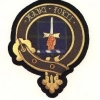-
Posts
64 -
Joined
-
Last visited
Content Type
Profiles
Articles
Forums
Gallery
Downloads
Store
Everything posted by BoCat9
-
Seems like the year has crept by and I wanted it to speed up. Now the days are flying by and I wish thy would last longer. Test on the 2nd and the 8th, both are scaring the crap outta me.
-
i would like to thank all of the men and women who have fought for the freedom of me and everyone else in this country.




